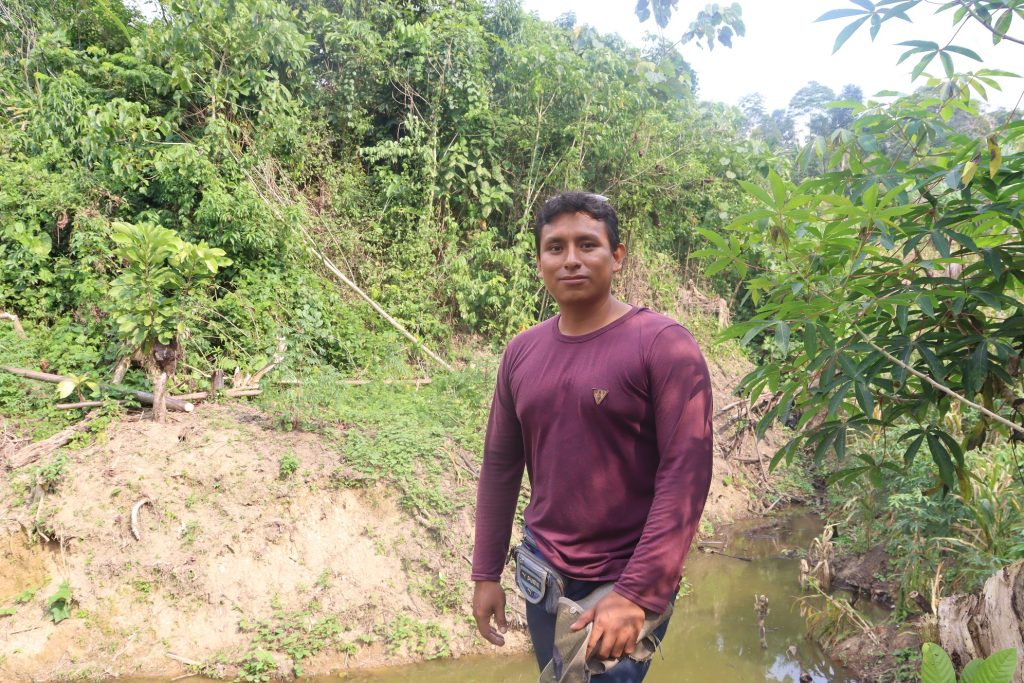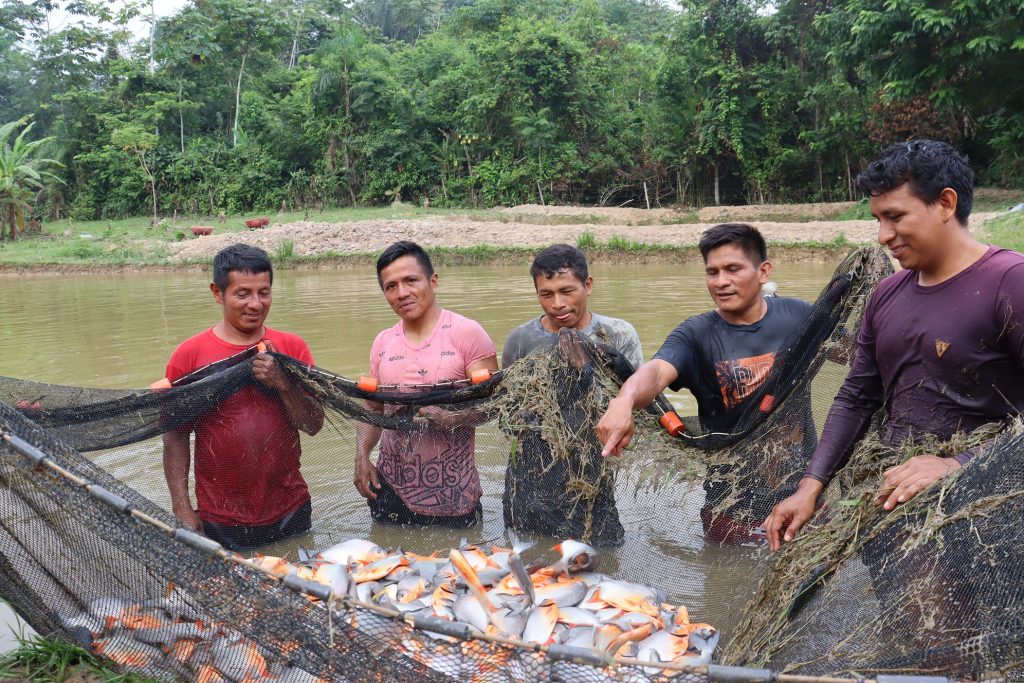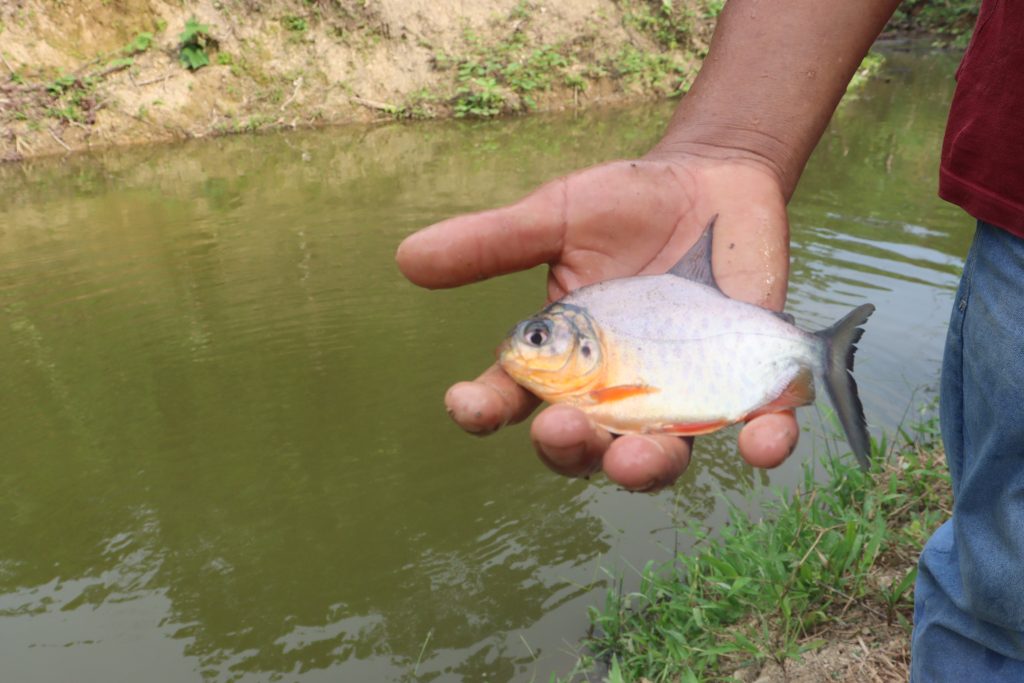The forest depends on fish farmers
Fish farming in Awajun communities has helped participants secure sustainable livelihoods in the Amazon rainforest.
Thanks to the breeding of native species, such as paco and gamitana, families are guaranteed nutritional intake and income from the sale of surpluses that are not consumed at home.


Felix Mejía, technical manager for the fish farming project with Awajún communities in the Amazon rainforest
For seven years, Felix Mejía, a biologist and technical manager of the fish farming project, has made one of these communities in the Amazon Rainforest his home. “Before I arrived and started this project with Cool Earth, no one knew what fish farming was. Now everyone is excited to own fish. We support farmers with training on feeding, technical advice and construction of ponds.”
Today, there are 93 families who own fish ponds near their homes. But it’s not always been easy. Poor infrastructure to build fish ponds, the difficulty of obtaining quality fish fry in such remote parts of the Amazon are some of the obstacles Felix and his team have had to overcome.


The fish farming team and participants of the project in the Awajún community of Huaracayo
Felix tells us that, “in the past, fish farmers would build their dikes by stacking jute sacks on top of each other. But this meant that water would filter through them very easily once the ponds were filled up. Thanks to one-to-one technical assistance with producers, we were able to adapt and change some of the practices to make fish farming more effective. We even ensured that these sessions were conducted in the local language as many participants do not speak Spanish well.”
“What motivates me the most is to see the joy it brings to community members. Thanks to fish farming, they have money to cover their basic needs.”
Going further
Building a fish pond is not the ultimate goal for these Awajún communities. They are now on a mission to form a producer association to market their fish on a larger scale and create products like delicious fish burgers to ensure this activity sustains as many people in the community.


Native fish from the Amazon rainforest
“When I was told that Cool Earth and the fish farmers wanted to establish an association, I saw the need to find people and organisations who could help us to with the bureaucracy that comes with such a process.”
With his team, Felix travelled to the nearest town to meet with local officials and began a process to formalise their association that took almost three years due to the pandemic.
“Since 2020, we’ve been working on this process. I’m proud to say that we’ve just been registered by the local government. Thanks to this, fish farmers can now request support from the state, access credits, and participate in training sessions on a range of innovative methods to improve and sustain their fish ponds.
“I have a lot of affection for the community, I practically live here and I identify with them, with what they live.”
If you, like us, feel inspired by Felix’ commitment to fish farming, the villages and the rainforest, don’t hesitate to donate.
You can read more about this project and learn about what participants say by clicking here.
